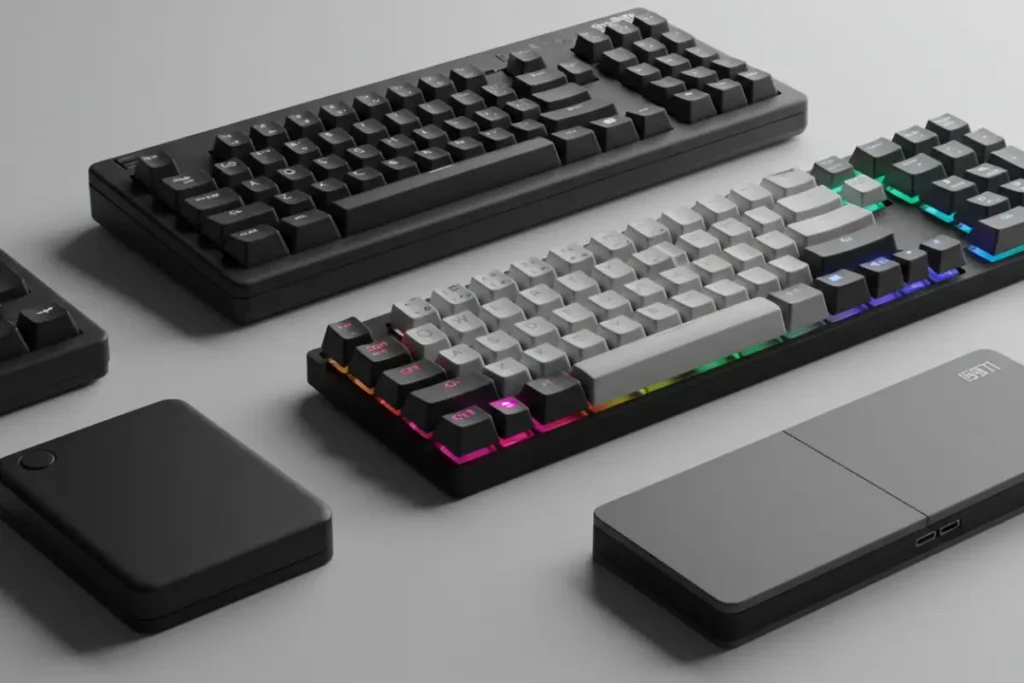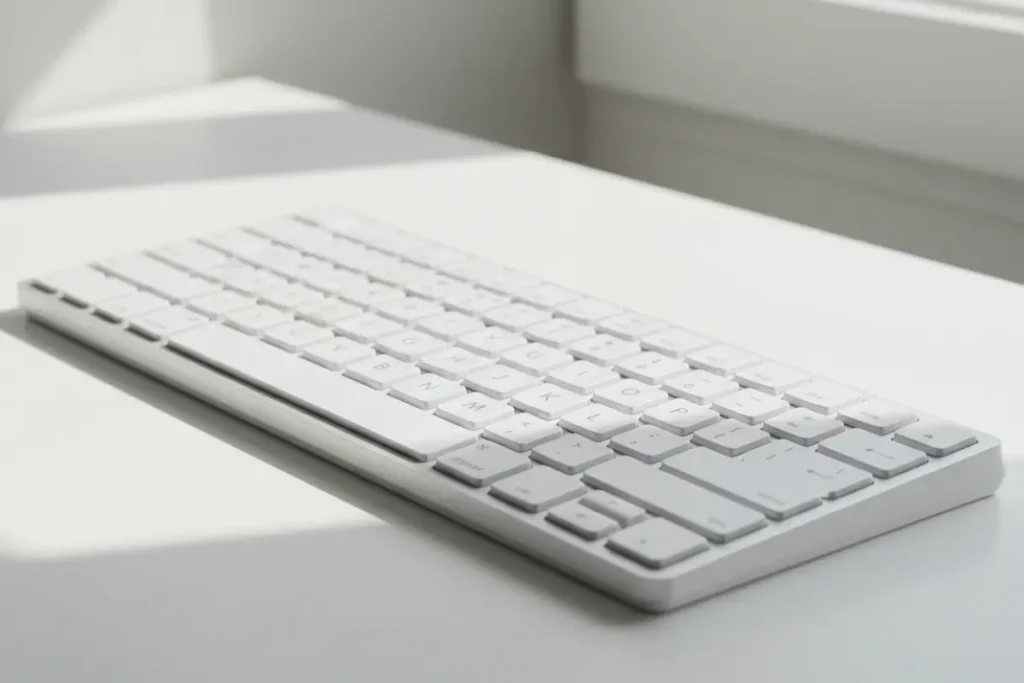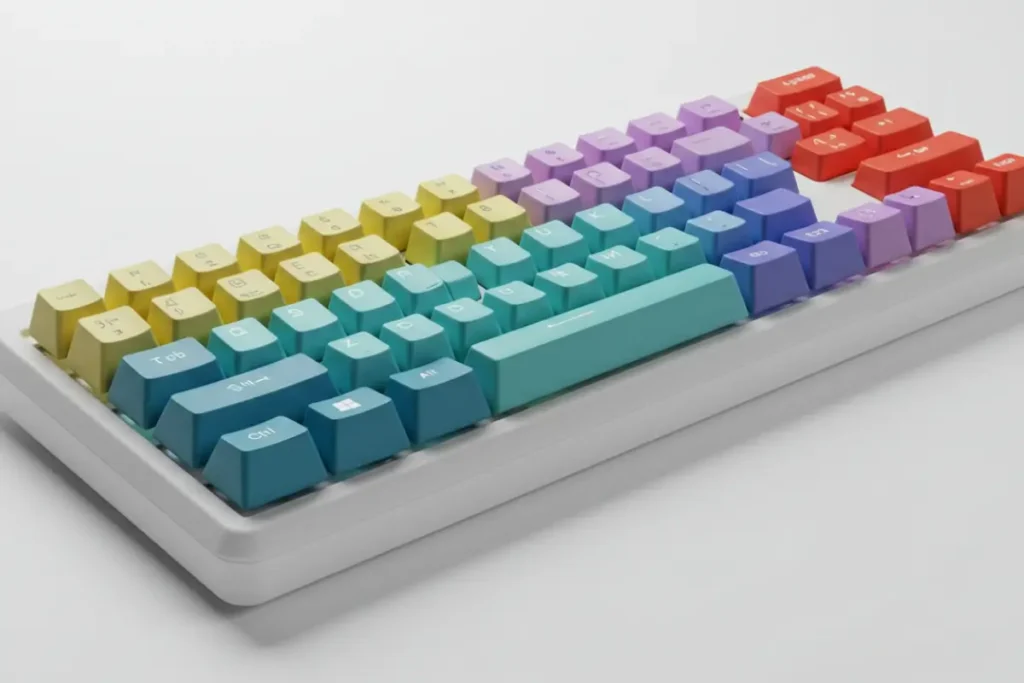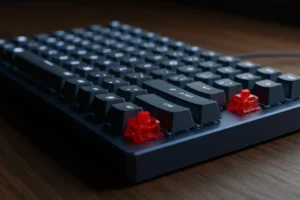When you sit down at your computer to type, have you ever wondered why you feel more comfortable with one keyboard over another? It’s not just about the look or the brand—there’s a lot more going on behind the scenes, and it’s tied to psychology, ergonomics, and personal preference.
I know this topic is very technical and there are things that are difficult to explain, so I actually wanted to say that before reading the article, keep this in mind, there are many technical things in this article.
Understanding the psychology of typing can help explain why some people prefer certain keyboard types, layouts, and switches.
In this article, we’ll dive deep into why we tend to gravitate towards specific keyboards, exploring factors like feel, sound, and tactile feedback.

The Connection Between Typing Experience and Emotion
Our relationship with keyboards is deeply emotional. The feel of a key press, the sound it makes, and the comfort it provides can affect our overall typing experience.
The sound of a mechanical keyboard, for instance, is known for being satisfying, offering auditory feedback that makes the typing experience feel more alive.
For some people, the tactile feedback of a mechanical keyboard helps them feel more connected to their work. The keypress isn’t just a simple action but a moment of engagement.
I can definitely say that, for me, typing on a mechanical keyboard with clicky switches makes every sentence feel more deliberate.
Another emotional aspect is the sense of comfort. Typing for long hours can lead to discomfort and fatigue, but the right keyboard can make a significant difference.
Ergonomic keyboards are designed with this in mind, featuring key layouts and curves that minimize strain on your hands and wrists. This helps to reduce long-term fatigue and even the risk of repetitive stress injuries (RSI).
Factors That Influence Keyboard Preference
Several factors play a role in determining why we like one keyboard over another. Let’s explore some of the most important ones.
1. Key Switch Type
Key switches are arguably the most critical factor in choosing a keyboard. The feel of the keys under your fingers, combined with their actuation force, gives you a unique typing experience. There are three main types of switches: linear, tactile, and clicky.
- Linear switches offer a smooth keystroke without any bumps or clicks. They’re great for people who prefer a quiet typing experience.
- Tactile switches give a noticeable bump when the key is pressed, providing feedback without the clicky sound. This is ideal for those who like to feel when a key has been actuated.
- Clicky switches offer both the tactile bump and an audible click, which many typists and gamers find incredibly satisfying.
Each switch has its own advantages, and personal preference will dictate which type you prefer. For instance, gamers might lean towards clicky switches for that satisfying feedback during intense gaming sessions.

2. Ergonomics and Layout
Not all keyboards are made the same. Some feature a traditional layout, while others offer ergonomic designs that aim to reduce strain during long typing sessions.
Ergonomic keyboards often feature split layouts, where the keys are divided into two sections to align with the natural posture of your hands and wrists.
The key layout is another consideration. Some people prefer a compact layout with fewer keys, such as the 60% or 65% keyboards, while others enjoy the full-size keyboard with all the function keys and a numpad.
Your personal typing style and comfort preferences will play a significant role here.
3. Aesthetics and Design
A keyboard’s aesthetic appeal also plays a huge role in its appeal. The sleek, minimalistic designs of modern keyboards, or the bright RGB lighting, can influence your emotional connection to the device.
Many gamers, including myself, enjoy RGB lighting, which gives the keyboard a dynamic and colorful feel, perfect for creating the ultimate gaming environment.
4. Typing Sound and Noise Level
I believe that the sound of your keyboard can impact your mood while typing. The auditory feedback from a keyboard, such as the satisfying click of mechanical switches, can help you focus and stay engaged.
It also provides a sense of satisfaction, similar to the sound of an old-school typewriter. On the other hand, quieter, membrane-style keyboards offer a softer, more muted experience for those who prefer to type without making too much noise.
5. Brand and Price
Sometimes, our preferences are also shaped by brand reputation and price point. High-end brands like Logitech, Corsair, and Razer offer premium keyboards, while budget-friendly brands may provide entry-level options with fewer features.
While a top-tier keyboard might offer additional functionality or better switches, the price can be a major factor for many buyers.

Why Do We Keep Coming Back to Our Favorite Keyboards?
Once you’ve found your perfect keyboard, it can be hard to switch to something else. Familiarity and muscle memory play a significant role in our attachment to specific keyboards.
Your fingers are accustomed to the way the keys feel and respond, making it difficult to get used to a new setup. Moreover, the emotional connection we build with our favorite keyboard can make us feel like we’ve found something irreplaceable.
I know from experience that after years of using a mechanical keyboard with clicky switches, it’s tough to go back to a membrane-style keyboard. The sound, the feel, and the feedback have become part of my typing routine. It’s not just about typing—it’s about enjoying the process.
Conclusion: The Psychology Behind Keyboard Preference
In the end, keyboard preference comes down to a combination of psychological, emotional, and physical factors. The key switches, ergonomic design, layout, aesthetics, and even the sound can all affect our typing experience.
I think it’s an interesting topic, but I myself have never been affected by being so used to one keyboard that I can’t use another, that’s never happened to me.
If you liked this article, leave a comment below sharing what kind of keyboard you use and why you love it! I’d love to hear your thoughts.
Read More: Can You Use a Keyboard to Play Video Games on Consoles?
See More
- The Best and Worst Mechanical Switches: A Tier List
- Mechanical Keyboard Brands Ranked from S-Tier to D-Tier
- How to Make Your Keyboard Quieter Without Replacing It
FAQs
Why do people prefer mechanical keyboards?
➡️ Mechanical keyboards offer tactile feedback, durability, and customization options. Many users find them more satisfying to type on compared to membrane keyboards.
What is the best type of keyboard for gaming?
➡️ It depends on personal preference! Some gamers prefer clicky switches for the feedback, while others opt for linear switches for faster response times.
Are ergonomic keyboards better for long typing sessions?
➡️ Yes, ergonomic keyboards are designed to reduce strain and promote a more natural typing posture, making them ideal for long sessions.
By the way, if you’re on the lookout for the latest in keyboard technology, be sure to check out my other posts at Keyboards Technology.


